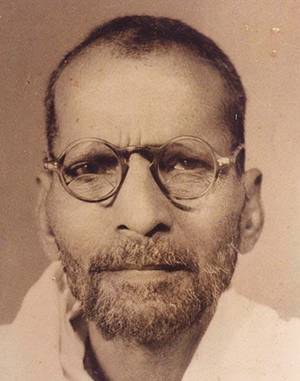Ganjam(near Srirangapatna) – Bengaluru, KARNATAKA :
Muslim Vellori, a prominent but not so well-known freedom fighter, did not restrict his public role to the freedom struggle but also played a prominent role in social service
The name of Muslim Vellori does not ring a bell now, but for an older generation of Bangaloreans, particularly Muslims in the city, that name is remembered with a sort of awe as he was a valiant freedom fighter. Born Mohammed Abdul Wahid Khan in 1883 in Ganjam near the historic town of Srirangapatna, Khan grew up to be known as ‘Muslim Vellori’ as he spent most of his childhood studying in a madrasa (Islamic seminary) in Vellore. Even though his father was in the army, Vellori grew up to develop an aggressive anti-British sentiment.
Vellori began working in a shipping company owned by his relatives in Bombay (now Mumbai) after completing his studies in Vellore. His granddaughter Dr. Shakira Khanum, who now teaches in Al-Ameen College, recalled an incident that Vellori had narrated to her. “Once, in Bombay, a Britisher made fun of his beard. My grandfather, who hated the British, was so livid that he almost shot the man,” said Khanum. Working in a shipping company at the time also ensured that he was among the few privileged Indians who could travel as his work took him beyond the shores of India. Vellori travelled to Burma, Sumatra and Java (now part of Indonesia), Mauritius, Ceylon (now Sri Lanka), Madagascar and to several cities in the Middle East. It was during his travels that he met Mahatma Gandhi in Durban. Gandhi and Vellori supposedly became quite close and the former had a formative influence on Vellori’s life.
As Vellori came of age, he came to acquire a reputation of being a fiery orator and through the course of his life took part in many anti-colonial struggles all over the country. He is particularly remembered for his role during the Khilafat movement (1919-1922) where he met many prominent freedom fighters including Mahatma Gandhi, the Ali brothers: Mohammed Ali and Shaukat Ali, Dr. Mukhtar Ahmed Ansari, Hakim Ajmal Khan, Saifuddin Kitchlew. Even the great poet Mohammed Iqbal is supposed to have lauded him for his passionate speeches when he exhorted the audience to support the Khilafat movement in Mumbai. Vellori was jailed several times for his provocative speeches and was even incarcerated in Bangalore Central Jail between 1924 and 1927. Even in prison, he is supposed to have been a recalcitrant internee and often questioned the authority of the jailers.
Vellori did not restrict his public role to the freedom struggle but also played a prominent role in social service. He raised funds to found orphanages in Mysore (now Mysuru) and Cuddapah (now Kadapa). Considering that he was close to several Congress leaders in the state and was recognised as a prominent Muslim leader who staunchly opposed the two-nation theory, he was nominated to the Mysore Legislative Council and was a member in the 1950s during the chief ministership of Kengal Hanumanthaiah. In later years, Jawaharlal Nehru called on him when he visited the state. Towards, the end of his long life Vellori became bitter as he was marginalised by the state leadership of the Indian National Congress and was ignored by the Muslims of the state who no longer felt that he was a suitable leader. An early resident of Jayanagar, Vellori died on Oct. 31, 1977.
(Information for this article has been gleaned from a short booklet published by Vellori’s granddaughter, Dr. Shakira Khanum, who teaches Hindi at Al-Ameen Degree College in Bangalore. Dr. Khanum has also painstakingly collected much of the supporting evidence for her grandfather’s illustrious life including a letter from Tulsidas Jadhav, who was Gandhi’s secretary briefly, attesting to Vellori’s close connections with the father of the freedom movement.)
source: http://www.thehindu.com / The Hindu / Home> Society> History & Culture / by Vikhar Ahgmed Sayeed / August 02nd, 2018









